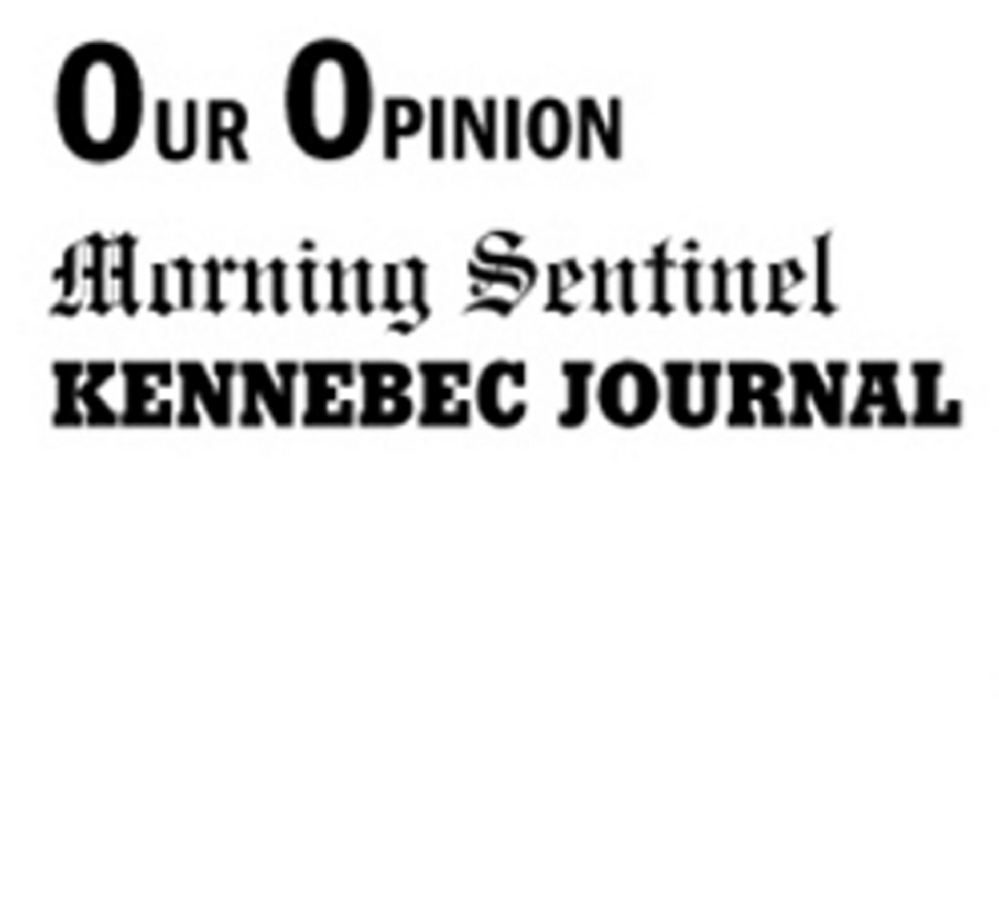For 39 years, Maine’s bottle redemption law has reduced the amount of roadside litter, encouraged recycling, supported jobs, and even provided a convenient source of revenue for clubs and organizations conducting bottle drives. That’s a track record that should not be fooled with lightly, and only with the right purpose.
The beverage industry, which has for years been trying to amend the law, may have found that purpose with a proposal that takes aim at Maine’s stagnant recycling rate.
L.D. 1204, sponsored by Sen. Andre Cushing, R-Hampden, would remove from the so-called bottle bill beverage containers of 32 ounces or more. Distributors would then contribute one-half cent for every container of that size sold in Maine in the next six years to a new fund, the proceeds of which would be awarded to municipalities with the purpose of increasing the amount of waste that is recycled.
There are risks for taking large containers out of the redemption stream. But those risks are worth it if the overall effect of the change is to increase a statewide recycling rate that peaked two decades ago, and to lessen the pressure on the state’s landfill capacity.
BIG BOTTLES
There are just over 1 billion beverage containers collected each year in Maine, and containers 32 ounces and more make up about 7 percent of the total,
These bottles are typically used at home, rather than on the road, so it is less likely they’ll be thrown out the car window rather than into a recycling container if they are removed from regulation.
They also take an inordinate amount of time to track and process, and because of their size they require more than their share of truck trips to transport.
Of course, the large containers would still have to transported, either by the waste management companies who would now be picking them up at people’s homes — and who would benefit from having more valuable plastic to recycle — or by residents themselves as they take the bottles to their municipal transfer station.
For that trade-off, distributors would put almost $400,000 a year for six years into the newly created Maine Recycling Fund.
That money would be distributed by an advisory council to cities and towns that need to increase their capacity for recycling and composting. It could be used to help initiate proven programs such as pay-as-you-throw, or to make recycling and composting more convenient in rural areas. It could be used to conduct education and outreach programs that make people more away of how to limit their waste. It could fund creative programs and initiatives that grow out of local efforts, and help spread those to other, similar communities.
RECYCLING PLATEAU
That’s important, because despite all the attention, Maine is not recycling enough of its waste.
After the state set a goal in 1989 of recycling half its waste, the recycling rate jumped rapidly from 32.5 percent to its high of 41.5 percent in six years. Since then, the rate has hovered between 35 and 40 percent, with a rate of 39.6 percent in 2012.
That percentage is low, particularly when nearly 40 percent of trash that is burned or placed in a landfill is compostable.
What’s more, as of 2012, Maine had only 67 percent of its project necessary landfill capacity for the next 20 years. Building more capacity is expensive, both in terms of dollars and in the cost to the environment of burying more trash.
The state can clearly use either lessons on how to keep as much waste as possible out of the ground, or more convenient and cheap ways to get rid of waste properly.
All of that makes the Maine Recycling Fund a good idea. Opponents of L.D. 1204, however, say there are better ways to fund it, including using unclaimed deposits, or removing certain exemptions on landfill fees.
Those ideas, particularly using unclaimed deposits, deserve a look.
L.D. 1204, however, provides an easy-to-access, predictable revenue stream for much-needed work. The numbers may need changing — the half-cent contribution and the six-year time limit may not provide enough money, and distributors won’t be broken by higher rates — but the bill provides a good framework. Good enough even to justify changing the bottle bill.
Send questions/comments to the editors.



Success. Please wait for the page to reload. If the page does not reload within 5 seconds, please refresh the page.
Enter your email and password to access comments.
Hi, to comment on stories you must . This profile is in addition to your subscription and website login.
Already have a commenting profile? .
Invalid username/password.
Please check your email to confirm and complete your registration.
Only subscribers are eligible to post comments. Please subscribe or login first for digital access. Here’s why.
Use the form below to reset your password. When you've submitted your account email, we will send an email with a reset code.